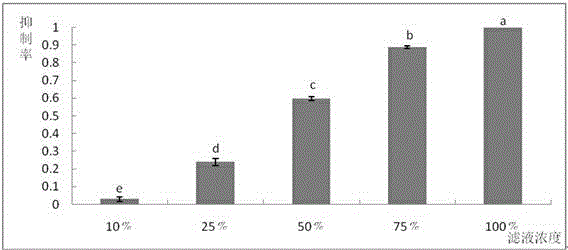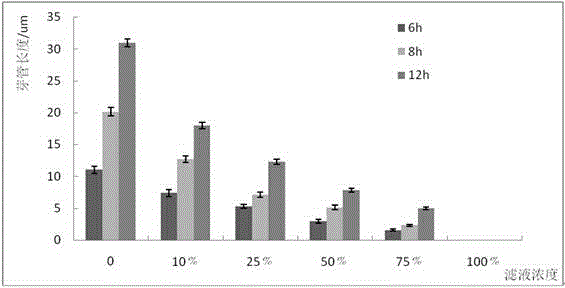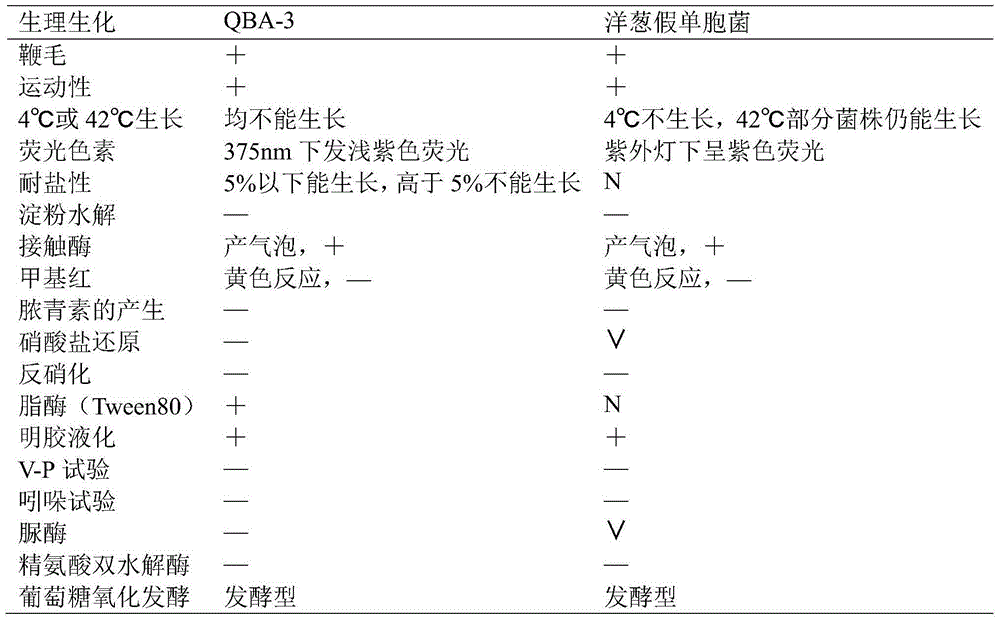Pseudomonas cepacia strain QBA-3 having function of inhibiting botrytis cinerea and application thereof
A technology for Pseudomonas cepacia and Botrytis cinerea, applied in the field of microorganisms, can solve problems such as affecting the sustainable and healthy development of agriculture, excessive pesticide residues, environmental pollution, etc., and achieve the effect of good market application prospects.
- Summary
- Abstract
- Description
- Claims
- Application Information
AI Technical Summary
Problems solved by technology
Method used
Image
Examples
Embodiment 1
[0020] 1. Isolation and screening of strains
[0021] On March 19, 2013, 20 tomato leaf samples were collected in a greenhouse in Laiyang City. Each leaf was soaked in 75% alcohol for 10 seconds, then soaked in 0.1% mercury chloride for 30 seconds, rinsed with sterile water for 3 times, and transferred to sterilized water. Grind in a mortar treated with bacteria, add sterile water to dilute to 10ml, continue to dilute to 10ml with sterile water -5 times, take 100ul respectively and apply LB plates (tryptone 10 g / L, yeast extract 5 g / L, sodium chloride 5 g / L, pH 7.0), and culture at 30°C.
[0022] Pick a single colony and inoculate it in YEPD medium (yeast extract 3 g / L, peptone 10 g / L, glucose 20 g / L) at 25°C and 120 rpm for 24 hours, then culture at 25°C and 12000 rpm Centrifuge under the conditions, filter the supernatant through a filter with a diameter of 0.22um, inoculate the conidia of Botrytis cinerea into the filtrate and let it stand for cultivation, inoculate the co...
PUM
 Login to View More
Login to View More Abstract
Description
Claims
Application Information
 Login to View More
Login to View More - R&D
- Intellectual Property
- Life Sciences
- Materials
- Tech Scout
- Unparalleled Data Quality
- Higher Quality Content
- 60% Fewer Hallucinations
Browse by: Latest US Patents, China's latest patents, Technical Efficacy Thesaurus, Application Domain, Technology Topic, Popular Technical Reports.
© 2025 PatSnap. All rights reserved.Legal|Privacy policy|Modern Slavery Act Transparency Statement|Sitemap|About US| Contact US: help@patsnap.com



